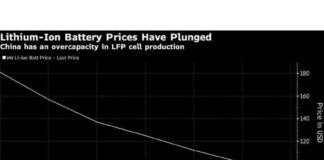The recent discovery of toxic metals in tampons from well-known brands has raised concerns among many women, but for some, this news is not surprising. One individual who has been addressing this issue for over three decades is the founder of Natracare, a company dedicated to providing safe and environmentally friendly period products.
Researchers from the University of California at Berkeley found 16 metals, including lead and arsenic, in tampons from 14 different brands sold across the U.S. and Europe. The study, published in the journal Environmental International, highlighted the potential risks of these metals being absorbed by the body through direct contact with the vagina.
While further research is needed to determine the extent to which these metals leach out of tampons, the findings have sparked concerns about women’s health. The lack of transparency and precautionary measures in the period products industry has been an ongoing issue, with past scandals involving Toxic Shock Syndrome, dioxin residuals from chlorine bleaching, phthalates in plastics, PFAS “forever chemicals” in period underwear, and VOCs in various products.
The founder of Natracare first became alarmed by the potential dangers of menstrual products in the early 1980s. Witnessing pollution in the River Mölndalsån in Sweden and learning about the health risks associated with dioxin residues from chlorine bleaching processes, she decided to take action. Despite having no prior experience in the industry, she conducted extensive research on the materials used in pads and tampons, uncovering disturbing facts about the prevalence of plastics and harmful chemicals in conventional period products.
In 1989, Natracare was established in the U.K., with a focus on creating safe and eco-friendly alternatives to mainstream period products. The company’s products are regularly tested for heavy metals, PFAS, VOCs, pesticides, synthetics, and plastic contaminants, and the results are made publicly available. Natracare tampons are certified compostable, accredited by Made Safe, and meet the Global Organic Textile Standard.
The recent study on toxic metals in tampons underscores the need for stronger regulatory measures and consumer awareness. By providing information on the potential risks associated with conventional period products, researchers are empowering individuals to make informed choices about their menstrual health.
Subheadings:
The Dangers of Toxic Metals in Tampons
The Environmental Impact of Conventional Period Products
Advocating for Safe and Sustainable Menstrual Care
As concerns grow over the presence of heavy metals in tampons, it is essential to consider the broader implications of using conventional period products. The impact of these products on both human health and the environment cannot be overlooked, particularly in light of the growing awareness of the need for safe and sustainable menstrual care options.
The presence of toxic metals such as lead and arsenic in tampons raises serious health concerns for women who rely on these products every month. These metals can be easily absorbed by the body when in direct contact with the vagina, potentially leading to long-term health issues. While more research is needed to fully understand the risks associated with these metals leaching out of tampons, the findings of the UC Berkeley study serve as a wake-up call for the period products industry.
In addition to the health risks posed by toxic metals in tampons, the environmental impact of conventional period products is also cause for concern. With sewers becoming overloaded with flushed tampons, plastic items are finding their way into waterways and oceans, contributing to the already significant problem of plastic pollution. Microplastics from period care products can harm marine life and pollute coastal ecosystems, highlighting the urgent need for more sustainable alternatives.
The founder of Natracare recognized these risks early on and took action to create a brand that prioritizes health and sustainability. By advocating for regulations that require tampon manufacturers to test for harmful chemicals and heavy metal residuals, she has paved the way for a more transparent and responsible approach to menstrual care. Natracare’s commitment to third-party testing and certification ensures that consumers can trust the safety and quality of their products.
As the conversation around menstrual health and sustainability continues to evolve, it is crucial for individuals to have access to accurate information and safe alternatives for their periods. By supporting initiatives like the Tampon Safety and Research Act and advocating for stricter regulations in the period products industry, we can work towards a future where menstruators can choose products that are both safe for their bodies and the environment.
In conclusion, the discovery of toxic metals in tampons serves as a reminder of the importance of prioritizing health and sustainability in menstrual care. By raising awareness of the risks associated with conventional period products and advocating for safer alternatives, we can empower individuals to make informed choices about their menstrual health. Natracare’s commitment to transparency and quality sets a positive example for the industry, demonstrating that safe and sustainable period products are not only possible but essential for the well-being of both individuals and the planet.






















